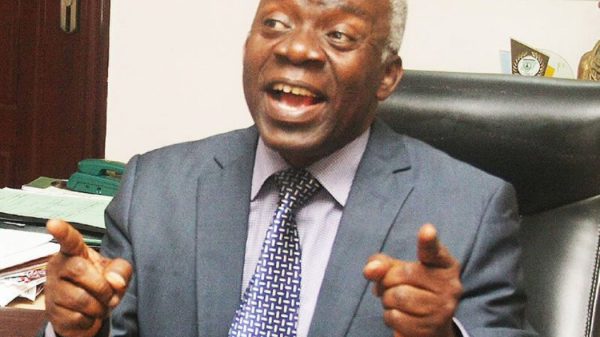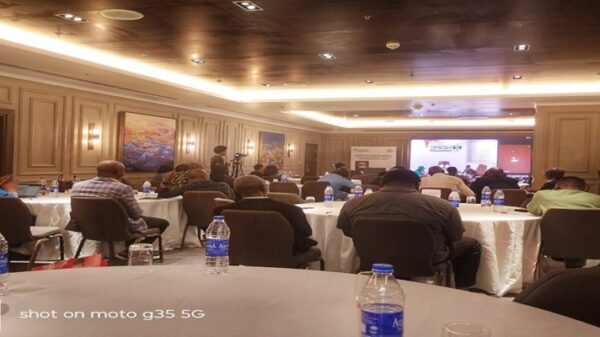The National Agency for the Prohibition of Trafficking in Persons (NAPTIP) on Tuesday launched a policy document aimed at tackling all forms of Gender Based Violence (GBV) in the country.
Hajia Sadiya Umar-Farouk, Minister of Humanitarian Affairs, Disaster Management and Social Development, said in Abuja that the document was to institutionalise an internal gender mainstreaming strategy in NAPTIP.
Umar-Farouk said that it was also targeted at giving proper operation to GBV issues and address gender gaps by contributing to the realisation of eliminating the menace.
“I believe that the launch of this NAPTIP’s gender policy will complement the agency’s operational strategies to curb gender-based violence and address gender gaps.
“It will also chart a new course in the management of the agency’s relationships with its various partners and clients,’’ she said.
Umar-Farouk called on policy makers to analyse the society critically in order to recognise the discriminatory practices against women in particular, as well as men.
The minister called on Ministries, Departments and Agencies (MDAs) to adopt and strengthen measures to mainstream gender concerns in all their activities and programmes.
Earlier, NAPTIP Director General, Imaan Sulaiman-Ibrahim, stated that the policy document was produced in collaboration with some foreign organisations.
According to her, it was produced under the two years programme on prevention of forced migration and trafficking in women and girls in Nigeria.
She said the document would provide the platform that would guide NAPTIP work in gender secure response.
Sulaiman-Ibrahim added that it would promote gender sensitive environment that would address forced migration, trafficking and other GBV crimes.
“Women equality and empowerment, being one of the 17 Sustainable Development Goals (SDGs), is integral to all dimensions of inclusive and sustainable development.
“Of particular reference is SDG five, which is aimed at eliminating all forms of discrimination and violence against women in the public and private spheres.
“Gender equality is not only a fundamental human right, but a necessary foundation for a peaceful, prosperous and sustainable world,’’ she stated.
Sulaiman-Ibrahim said that the document would strengthen gender clauses and mainstreaming of gender into policies, legislations, programmes and operations of NAPTIP.
“It will assist in the prosecution of male and female offenders, with attention to their gender needs, strengthening the network of stakeholders, groups, and individuals at all levels in Nigeria,’’ she added.
Ms Comfort Lamptey, UN Women Country Representative for Nigeria and ECOWAS, pledged to support Nigeria in the area of protection of women’s rights.
Lamptey called on the Federal Government and other stakeholders to take necessary steps to implement the policy.
She commended NAPTIP for coming up with such a policy document as well as government for the political will to end human trafficking.
“The achievement of gender equality and protection of women’s rights is critical if Nigeria is to meet its deepest aspirations in this decade of action as we race to attain the SDG targets,’’ Lamptey said.
(NAN)
![]()



























































